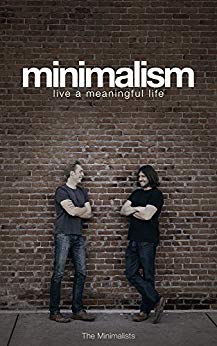

This article is an excerpt from the Shortform summary of "Minimalism" by Joshua Fields Millburn and Ryan Nicodemus. Shortform has the world's best summaries of books you should be reading.
Like this article? Sign up for a free trial here .
Consider your current relationships. Overall, do they make you happy? Are your relationships positive, supportive, and helpful?
Here’s an exercise to help you answer these questions and evaluate your current relationships. Make a list of every relationship — include every person with whom you interact regularly — in which you’re currently involved. Add two more columns and fill it them in as follows:
- Name: Put names in the first column: family, close friends, significant others, coworkers, bosses, teachers, for example.
- Category: In the second column, categorize each as a primary, secondary, or peripheral relationship.
- Primary relationships are your closest relationships (closest family, closest friends). They’re the main characters in your life story.
- Secondary relationships are similar to the primary ones, except they are of less value for various reasons. They may include close friends, boss, a few coworkers, and extended family members. They’re your supporting cast.
- Peripheral: The majority of people in your life fall into this category, the periphery. They include most coworkers, neighbors, members of your community, acquaintances, distant family. They’re minor characters, and occasionally extras, in your life.
- Effect: In the third column, indicate the effect of each relationship on your life: positive, negative, or neutral.
- Positive relationships make you happy and help you grow
- Negative relationships make you unhappy, frustrated, or dissatisfied. They can stymie your personal growth.
- Neutral relationships fall somewhere in the middle.
Important points: Many close primary relationships can be neutral or negative. The fact that someone is close to you doesn’t mean it’s a positive relationship. Some of your most negative relationships are in your top two tiers. As for the peripheral category, many of these relationships are neutral but some might be positive.
Understanding Your Current Relationships
Look at your list and consider:
- How many relationships do you have?
- How many are there in each tier?
- What percentage are positive, negative, neutral?
Although your primary and secondary relationships are your most important, the people in your peripheral category (those less significant to you) probably get most of your attention because they’re often part of your daily life.
What do you do about this? First, you may want some of your peripheral category to play a larger role in your life (move to your primary or secondary levels). If so, think about how you could strengthen those relationships.
As for those remaining in your peripheral group, even though you may like them, you need to devote less time to them and more to your primary and secondary relationships. This might mean saying no more often to casual gatherings or commitments that you’re on the fence about attending anyway.
Similarly, you may have primary or secondary relationships that you want to de-emphasize, especially if they’re negative. Rethink what role these people should play in your life.
Your relationships don’t stay the same throughout your life. People come and go, and their significance to you changes as both of you grow. People important to you a decade ago may be less so today.
You must actively choose your relationships, which requires difficult decisions.
Focusing on the Most Important Relationships
The rest of this chapter focuses on your primary relationships (current and future). They are the people you love, the ones for whom you would do anything. These relationships typically include:
- Intimate relationships: spouse or significant other. This is your most important relationship and should be treated that way.
- Closest friends: your best friends, usually fewer than five people.
- Immediate family: parents, children, and other close family members.
Secondary relationships are also important but should get your attention only after fulfilling your commitments to your primary relationships, which are your top priority.
Changing Relationships
We all change over time. The fact that someone has changed doesn’t mean they don’t care about you — just that they’ve changed.
People evolve, separately or together. You can’t expect a person to stay the same or to change the way you want them too. They’re not obligated to meet your standards.
Changing yourself, however, can lead to more positive relationships. For example, if you improve your diet and start exercising, people around you may follow suit. You can bring out the best in other people.
That said, occasionally you may have to end a relationship if someone’s beliefs and values change in a way that you can’t tolerate (for instance, they express racial prejudices you strongly disagree with). Terminating or changing the terms of your relationships is part of managing them.
Sometimes relationships just don’t work, or they stop working. Problematic relationships may include intimate relationships, close friendships, employee-boss relationships, and family relationships.
You can try repairing a valued relationship, but know that you can usually step away. For instance, when Joshua and his wife began having difficulties getting along with each other. They both worked to improve their relationship, including going to counseling, but in the end it didn’t work and they eventually divorced. You don’t have to stay in a negative relationship — in fact it’s not healthy to do so.
———End of Preview———

Like what you just read? Read the rest of the world's best summary of "Minimalism" at Shortform . Learn the book's critical concepts in 20 minutes or less .
Here's what you'll find in our full Minimalism summary :
- What Minimalism is, in complete detail
- How to simplify your life and get rid of things you don't need
- What's holding you back from your ideal career passion
- How to take care of your body and health, the simple way






